#apollino
Explore tagged Tumblr posts
Text
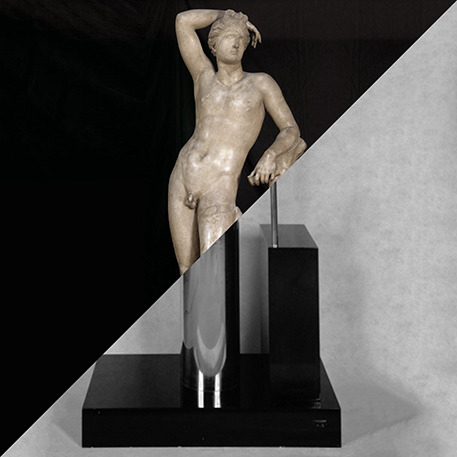
Apollino, 1st century AD VS Luciano Baldessari, Luminator, Bernocchi S.A., 1929
#apollino#apollo#Apollon#uffizi#uffizi gallery#galleria degli uffizi#florence#firenze#ancient greece#marble#statue#archaeology#ancient rome#rome#roma#luminator#luciano baldessari#lamp#light#design#made in italy#light design#lighting design#lamp design
66 notes
·
View notes
Text


[ Apollo showed me the sun // Told me not to fly too close // Or else I would be one // Of the people on the land... ]

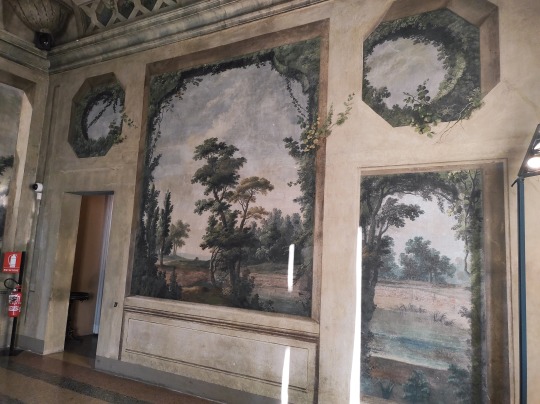
[ Daylight shuffles in // Cascading through the open door, and // Dancing on your lips // Where you held your cigarette... ]
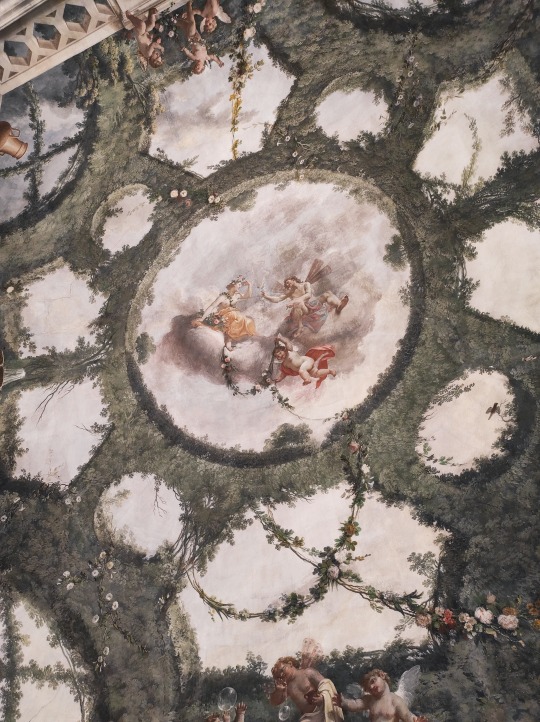
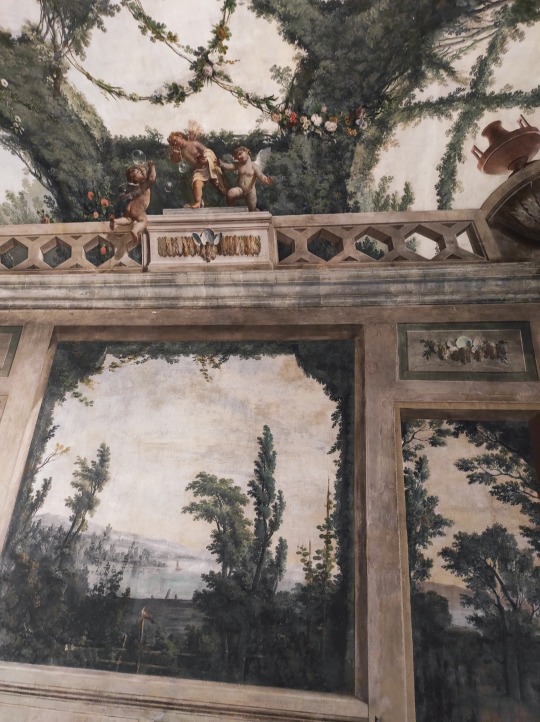
[ So, Apollo bring me back // To the place I was before I met you // And Icarus leads the way // To where I need to go... ]

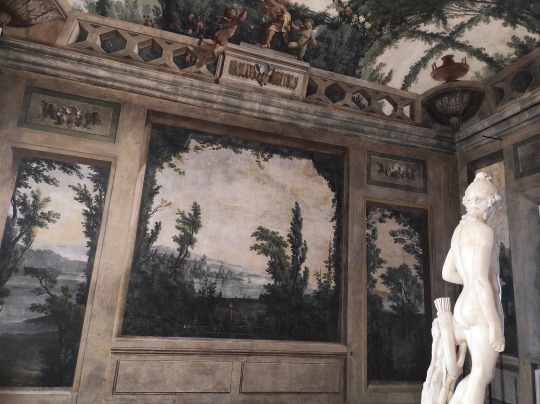
[ I hear your footsteps now // Barefoot soles on the bathroom floor, and // On my way out // I told you I would never leave... ]
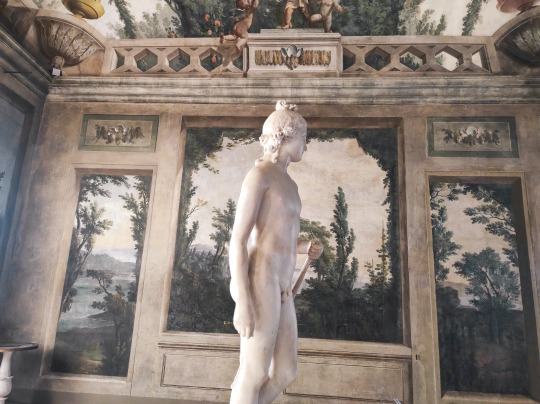
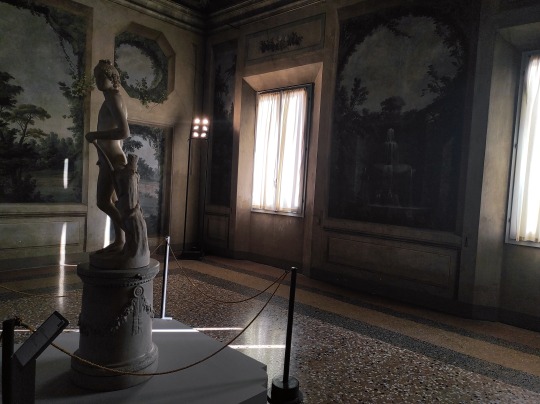
The Room of Apollo // Collezioni Comunali d'Arte // Palazzo d'Accursio ”Apollino” // Antonio Canova ”Icarus & Apollo” // Ripto
#dark academia#art academia#classic academia#light academia#art aesthetic#art academia aesthetic#dark academia aesthetic#academia#art#art history#palazzo#palace aesthetic#bologna#italian architecture#italy#chaotic academia#garden aesthetic#architecture#frescoes#fresco painting#sculpture art#sculpture#sculpting#green aesthetic#greek myth art#apollo#art collection#palazzo d'accursio#deity#greek aesthetic
78 notes
·
View notes
Text


New ocs!!
I've been on the WHA fandom for too long, and i'm really happy to create my own ocs for this universe! I'll make their own lore, but all you need to know it's that they're best friends from different schools and teachers.
I have no idea for names for the bird girl, but the sun boy is called Apollino!
Translation:
-Pointed hat witch
-Design based on a brazillian hummingbird species
-Has hyperactivity, talks fast
-Special magic: She can combine velocity and fly magic on the shoes, so she can fly really fast
#the girl also has an evil brinhat enby bf#my art#ocs#oc#original character#wha oc#witch hat atelier#witch#woah my english is looking worse
18 notes
·
View notes
Photo

Apollino by the workshop of Paolo Andrea Triscornia (18th Century)
#paolo andrea triscornia#art#sculpture#statue#fine art#18th century#18th century art#neoclassical#neoclassical art#neoclassicism#italian art#italian artist#mythology#roman mythology#roman god#apollo#apollino#marble sculpture#classic art
175 notes
·
View notes
Text
Cause I’m useless when you’re stuck in my mind.
#spotify#music#alt rock#rock#apple music#soundcloud#alternative#the strokes#albert hammond jr#2020#pop#indie pop#indie rock#indie#omar apollo#apollino
36 notes
·
View notes
Text

▪︎Apollino.
Artist: Workshop of Triscornia, Paolo Andrea (1757-1833)
Place of origin: Italy
Date: late 18th century
Medium: Marble
#18th century#18th century decorative arts#18th century sculpture#18th century statue#18th century art#late 18th century#history of art#art history#art#sculpture#apollino#paolo andrea triscornia#marble
57 notes
·
View notes
Text

Attributed to Francesco Righetti (1749-1819) “Apollino of the Villa Medici” Bronze and marble Located in the National Gallery of Art, Washington DC, United States
#sculptures#art#artwork#mythological sculpture#roman mythology#francesco righetti#bronze sculpture#marble statue#fine art#national gallery of art#museum#art gallery#italian artist#male figure#male nude#apollo#1700s#17th century#1800s#18th century
241 notes
·
View notes
Photo







The Apollo Lyceus
The Apollo Lyceus type, also known as Lycean Apollo, originating with Praxiteles and known from many full-size statue and figurine copies as well as from 1st century BCE Athenian coinage, is a statue type of Apollo showing the god resting on a support (a tree trunk or tripod), his right forearm touching the top of his head and his hair fixed in braids on the top of a head in a haircut typical of childhood. It is called "Lycean" not after Lycia itself, but after its identification with a lost work described, though not attributed to a sculptor, by Lucian as being on show in the Lyceum, one of the gymnasia of Athens. According to Lucian, the god leaning on a support with his bow in his left hand and his right resting on his head is shown "as if resting after long effort." Its main exemplar is the Apollino in Florence or Apollo Medici, in the Uffizi, Florence.
I made this statue from a free 3D model I found on the Internet. I reduced significantly the number of faces (4 000 000 to 9 975), built an UV map, normal map and textures.

Happy Simming ! Jim Polygon Counts: Object: High/Medium/Low Statue: 9975/4987/2493 Additional Credits: https://www.myminifactory.com/object/3d-print-the-lycean-apollo-109630 Blender, TSRW, S4S.
DOWNLOAD (SimFileShare)
Alternative LINK
If you want to support me, you can buy me a coffee in my Ko-Fi page:
Support TheJim07
Thanks!
254 notes
·
View notes
Photo

Apollino, after Praxiteles, Pichler family, 19th century, HAM: Sculpture
Harvard Art Museums/Fogg Museum, Gift of Mrs. A. D. Hurd Size: 2.2 x 2.2 x 1 cm (7/8 x 7/8 x 3/8 in.) Medium: Plaster
https://www.harvardartmuseums.org/collections/object/95078
1 note
·
View note
Photo






By Jean Marie Carey
Novalis, the poet, naturalist, mystic, philosopher, and founder of Romanticism died 25 March 1801. The literary achievement of Novalis, born 2 May 1772, who worked in his family’s Saxony salt mine for much of his short life, was mostly overlooked during his life.
Novalis’ unfinished 1800 novel Heinrich von Ofterdingen introduces both the "blue flower," the symbol that became an emblem for all of German Romanticism, and the fragment as literary device. But the subject of the narrative is the titular character’s trip to Italy, a journey Novalis, then bedridden and dying of tuberculosis, realized he would not make but imagined with poignancy nonetheless, concentrating greatly on what he imagined the Italian art “scene” of the 1700s to be:
The mind longs for rest and variety. In no other country are there more charming singers, graceful dancers, and glorious artists. …Italy softens the manners and enlarges the scope of conversation. The ladies adorn all social gatherings; nor need they fear remark, if they prove their talent by emulating the mental activity of the men. Friendship and love are the guiding sprits of these pleasant meetings. Italians .. have much greater artistic talent than we have.
From Heinrich von Osterdingen in Novalis: His Life, Thought, and Work translated by M.J. Hope. (Chicago: McLurg, 1891), p. 64.
Andrea Capponi, Carved Niche (Villa Gamberaia (Florence, Italy)); 18th century; 20th century restoration. Photographer: Elizabeth Barlow Rogers.
Length of Italian silk and velvet, c. 1750. The Metropolitan Museum of Art, Nr. 1992.15.
Anonymous Italian artist, Apollino, c. 1735. The Walters Art Museum, Baltimore, 54.1691.
Architects: Gabriele Montani and Johann Lukas von Hildebrandt; painters: Martino Altomonte and Leopold Kupelwieser. Peterskirche: The Healing of the Lame at the Temple Gate; The Virgin Immaculate; Interior: detail view of main altar from south. Building: 1702-1733; Altomonte altarpiece: early 18th century. Vienna, Austria.
Giovanni Volpato, L'Astrologio, after a painting by Francesco Maggiotto, 1743. Fine Arts Museums of San Francisco, Nr. 1988.1.265.
Novalis, (c.1799), portrait by Franz Gareis.
Further Reading: The Novices of Sais: With illustrations by Paul Klee, translated by Ralph Manheim. (Brooklyn: Archipelago, 2005)
Novalis. Heinrich von Ofterdingen. Chicago: Waveland Press, 1990.
#otd#novalis#the novices of sais#heinrich von ofterdingen#Gabriele Montani#Andrea Capponi#Giovanni Volpato#Francesco Maggiotto#romanticism#neoclassicism#art#italian#italian art#architecture#peterskirche#fabric#textile#Germany and Italy
23 notes
·
View notes
Photo

La #domenica vai sul classico, le aragostine alla #panna, variante campana della nostra #sfogliatella riccia (a Salerno nota come Apollino), e magari concediti un assaggio di moderno con le nostre #crostatine #mignon (le #tartelettes). #BuonaDomenica a tutti! #crema #cremefraiche #aragostina #codadaragosta #pasticcerianapoletana #pasticceriaclassica #pasticceria #pastry #pastrychef #patisserie #pasteleria #pasticceriaseccia #seccia #sweet #food #napoli #napolifood #campania #quartierispagnoli #likeforlike #like4like #likeforlikes #like4likes (presso Pasticceria Seccia) https://www.instagram.com/p/B5hxWSzIzMZ/?igshid=1rbymvr1vpc7y
#domenica#panna#sfogliatella#crostatine#mignon#tartelettes#buonadomenica#crema#cremefraiche#aragostina#codadaragosta#pasticcerianapoletana#pasticceriaclassica#pasticceria#pastry#pastrychef#patisserie#pasteleria#pasticceriaseccia#seccia#sweet#food#napoli#napolifood#campania#quartierispagnoli#likeforlike#like4like#likeforlikes#like4likes
0 notes
Photo

Аполлино в отеле «Англетер» в Санкт-Петербурге
Скульптура Аполлино (158см, Гипс) в Санкт-Петербурге https://opt-russia.ru/skulptura-apollon-molodoj-apollino-spb/
Скульптура на заказ в Санкт-Петербурге https://www.instagram.com/sculptury_na_zakaz/
1 note
·
View note
Photo

Second “Conversation Pieces” sale at Summers Place Auctions opens with a roar The second “Conversation Pieces” auction will take place on Tuesday, 20th March & Wednesday, 21st March 2018 at Summers Place Auctions in Billingshurst, Sussex.
After a successful first themed auction of this kind, this year's sale promises to include even more unusual and top quality pieces. The highlight is undoubtedly the pair of monumental bronze lions after Sir Edwin Landseer. They are indeed identical in size to the famous Trafalgar Square ones, but were made in the late 20th century for Camden Lock Market. Sir Edwin Henry Landseer (1802-1873) was famous for his paintings and sculptures of animals, particularly horses, dogs and stags, but his best known work are the four bronze lions on the base of Nelson's column, which he was commissioned to make by the government in 1858 and they were installed in 1867.

The 175cm high by 384cm long bronzes are expected to sell for £60,000-100,000. The sale will also include some of the fantastic horse sculptures from Camden Market.

They are expected to sell in the region of £20,000.

If rockets are more your thing, this auction includes a variety of objects which very much qualify as ultimate boys' toys. A rare SA-4 'Ganef' missile from circa 1968 is almost nine metres long and three metres wide. The 2K11 Krug (NATO code SA-4 Ganef) is a Sovietmade medium-range air defence missile. The development of the system started in 1958 and was first unveiled during a military parade in Moscow in May 1965.

It reached speeds of up to Mach 4 and had an effective range of 50-55 km (31-34 miles) depending upon the version. It carried a 135 kg (300 lb) fragmentation warhead and is expected to sell for £15,000-25,000.
A CIAM/NASA wind tunnel test platform rocket from around 1980 is over three metres long and now mounted vertically on a granite base. Made in Russia's Central Institute of Aviation Motors (C.I.A.M), the largest aerospace engine testing facility in Europe, the model weighs approximately 110 pounds. An apparently identical model has been used in tests conducted at NASA's Langley Research Center Unitary Plan Wind Tunnel. It has been part of the Air and Space Collection of the scramjet rocket engineer Professor Alexander
Roudakov and is estimated at £5,000-8,000.
An aluminium and upholstered seat created from the cowling of an RB211 jet engine, originally fitted to a Boeing 747 is 147cm high by 185cm wide by 104cm deep.
The Rolls-Royce RB211 is a British family of high-bypass turbofan engines made by Rolls-Royce PLC. Entering service in 1972, it was the first production three-spool engine, and it was to turn Rolls-Royce from a significant player in the aero-engine industry into a global leader. It carries an estimate of £1,200-1,800.
Other quirky lots include an unusual child's fairground ride in the form of a camouflage painted Bren Gun carrier tank made of aluminium and converted to a coffee table – it could be in your home for £1,200-1,800.

A painted wood passe-boule game board of Jafar the Grand Vizier of Agrabah in Aladdin is estimated at £300-500.

There are some real conversation pieces among the sculptures as well. A carved white marble group of Adam and Eve by Ernest Shone-Jones from 1953 on a stone pedestal is two metres high and estimated at £10,000-15,000. There are also two Bruno Locatelli bronzes included in the auction - "Le Bagnanti" (The Bathers) expected to fetch £8,000- 12,000 and "Donna al Vento" (Woman in the Wind) estimated at £5,000-8,000.
The Playing Leopards bronze by Mark Coreth, who enjoys a strong following in this country and who was brought up in Kenya, is expected to sell for £30,000-50,000.

Barry Mason's stainless steel fountains are always a talking point and this one, Thales, a limited edition of 10 and over three metres high, carries an estimate of £3,000-5,000.
There will also be an opportunity to acquire a couple of bronze figures after the antique from the last quarter of the 19th century. The Medici Apollo or Apollino is a Roman copy of a Hellenistic sculpture of the adolescent god Apollo of the Apollo Lykeios type (estimate £5,000-8,000). It is now in the Uffizi, Florence. Much admired, it was extensively copied from the 17th century onwards and like the Dancing Faun, which is also included in this sale (£6,000-10,000), such copies of Greco-Roman statuary were popular among contemporary wealthy art collectors who wanted their own versions of ancient art seen during their travels in Europe and Greece, on what was known as the "grand tour."
An extremely rare carved Bathstone urn on a helix pierced and carved pedestal from circa 1840 is estimated at £6,000-10,000 and a pair of fine lead finials from France, from circa 1760 is estimated at £8,000-12,000.
There is also a chance to buy a wonderful set of four Compton Pottery Apple Pattern pots from this local Art Guild, started by G.F. Watts' wife near Godalming, Surrey - it is estimated at £800-1,200.
Highlights among the Natural History part of the auction is a full mount Jaguar

which is expected to sell for £5,000-8,000 and a ruby in fuchsite sphere and point from South India which is estimated at £1,600-2,500.
A Dayak ancestor human skull, feathers, nose piece, seeds mounted on wooden stand is a real talking piece in any collection and carries an estimate of £2,000-3,000. A pair of Lapis Lazuli veneered table tops from the vein that has been continously quarried in Badakhsham in Afghanistan for over 3000 years will ensure admiration and are expected to sell for £5,000-8,000.

For further information on the auction, please visit www.summersplaceauctions.com or call 01403 331331.
For press information or images please contact Silke Lohmann ([email protected]/ 07932 618754). Summers Place Auctions are the world's leading auctioneers of Garden Statuary and Natural History.
The sales are held in the award winning 5000sq ft gallery nestling within 6 acres of walled gardens and the arboretum of the Victorian mansion, Summers Place, outside Billingshurst in West Sussex. 2018 Sales: 20th & 21st March – Conversation Pieces 12th & 13th June – Tribal & Travel 25th & 26th September – Home & Garden 20th November – Evolution Auction
1 note
·
View note
Photo

Apollino has definitely the best profile ever 😎 #GiulioBerruti (presso Teatro Parioli)
0 notes
Photo

Apollino, after Praxiteles, Pichler family, 19th century, HAM: Sculpture
Harvard Art Museums/Fogg Museum, Gift of Mrs. A. D. Hurd Size: 2.2 x 2.2 x 1 cm (7/8 x 7/8 x 3/8 in.) Medium: Plaster
https://www.harvardartmuseums.org/collections/object/95078
1 note
·
View note
